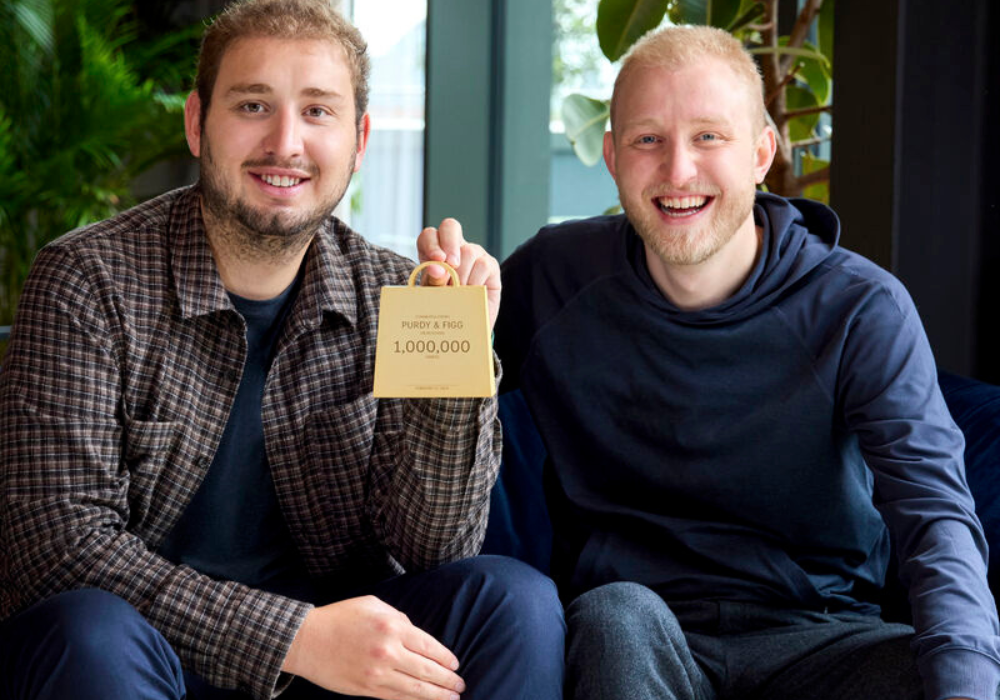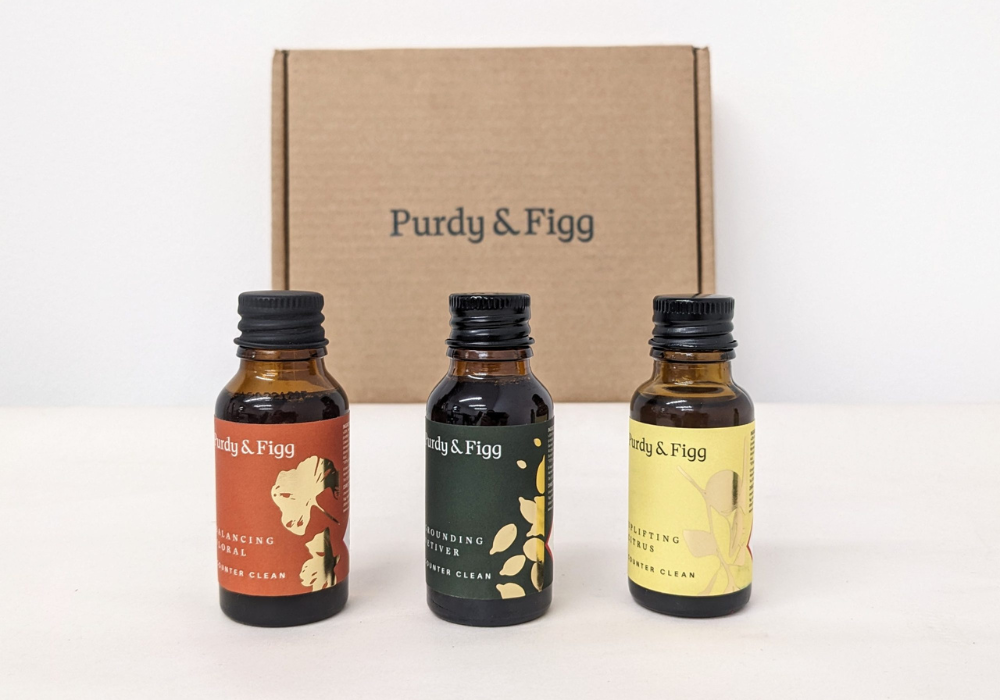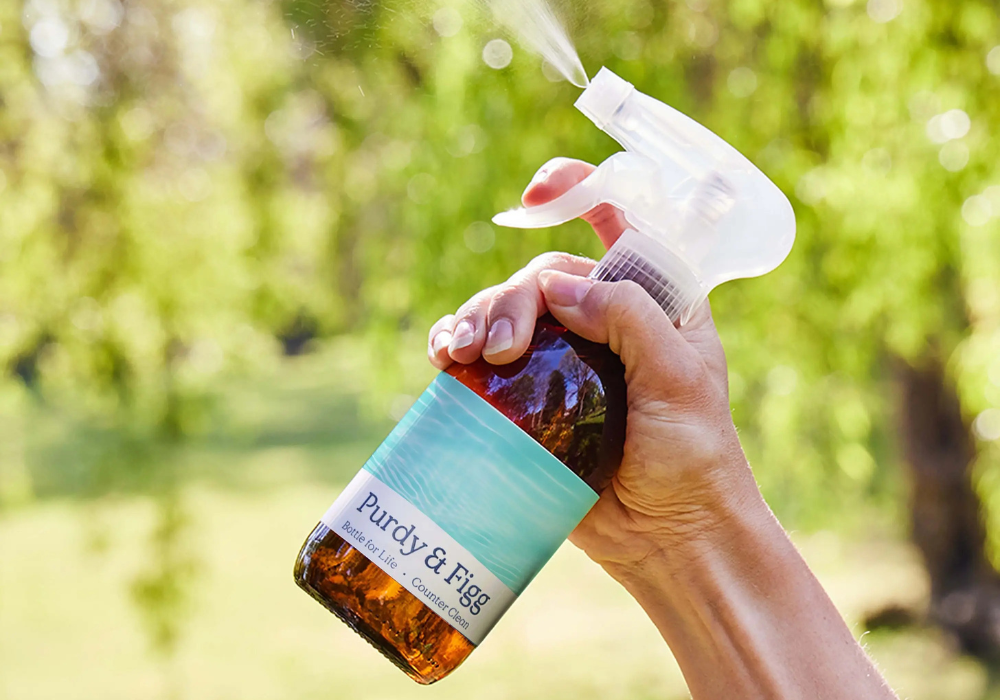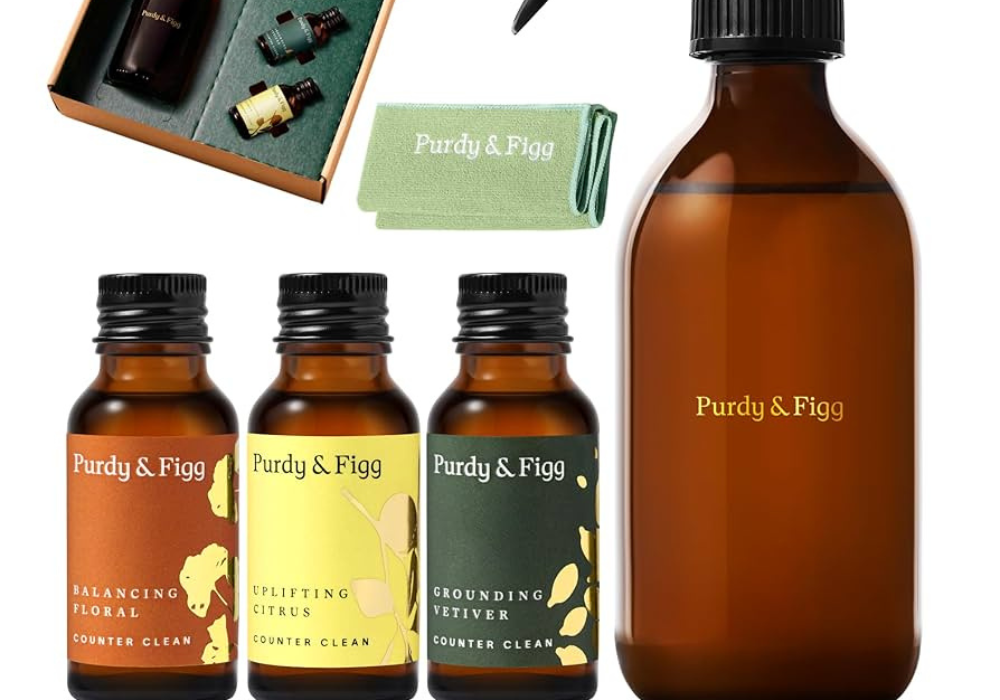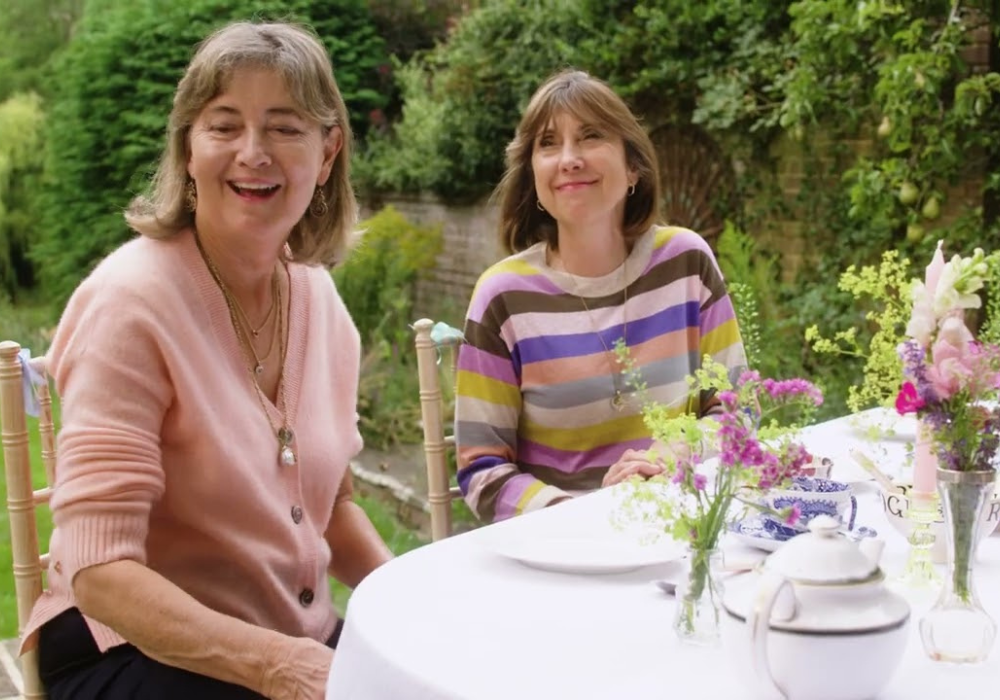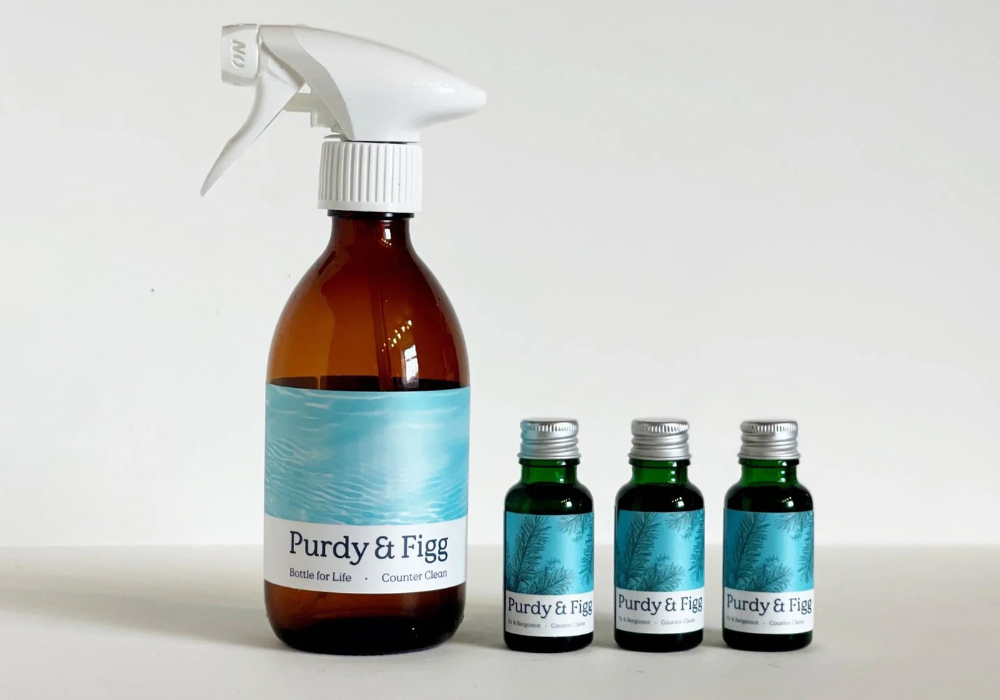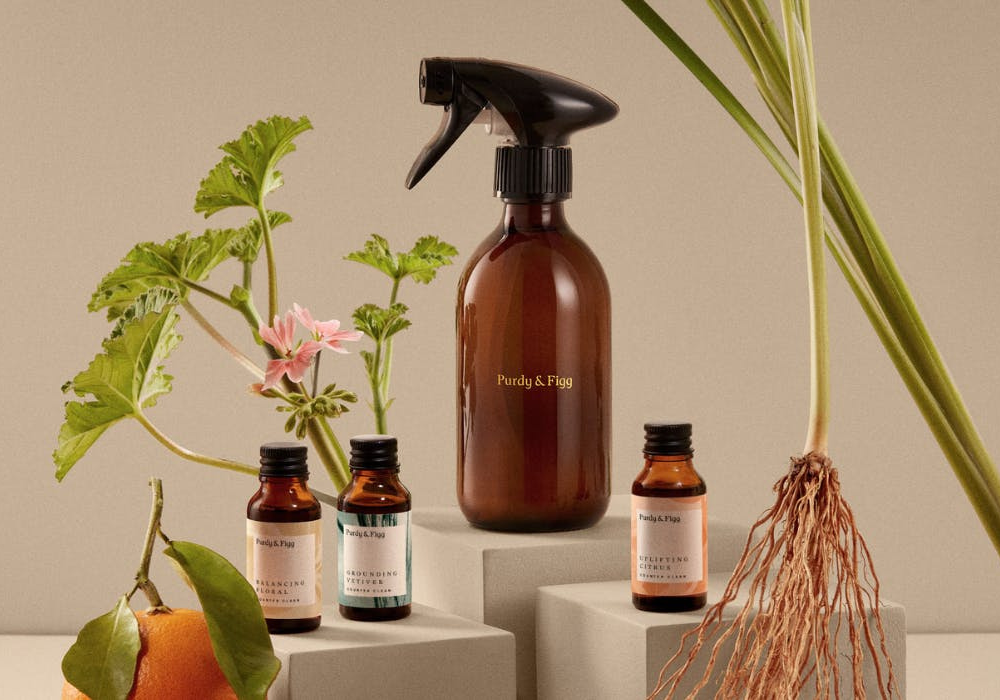Hertfordshire, 2018 — Purdy Rubin wiped lavender essential oil from her hands as neighbors squeezed into her garage. The NHS nurse had spent night shifts worrying about the toxic chemicals her patients brought home in cleaning supplies. Beside her, horticulturalist Charlotte Figg adjusted glass bottles filled with amber liquids. “Try this on your countertops,” Charlotte urged a young mother. “It’s just lemon, vinegar, and thyme oil, no lung-burning aerosols.” The woman inhaled deeply, her skepticism melting into wonder. “It smells like… a spa?” Within months, locals were driving across town to refill bottles, trading chemical-laden brands for Purdy and Charlotte’s natural cleaning products with essential oils.
When Purdy’s sons, Jack and Charlie Rubin, witnessed strangers lining up for cleaning products, they saw more than a hobby: They saw a rebellion against an industry poisoning homes. Four years later, that garage operation would explode into £50 million in annual revenue and redefine eco-friendly cleaning products.
The Grit Behind the Glow — Founding Story of Natural Cleaning Products with Essential Oils
The Founders’ Fire
Purdy Rubin: NHS nurse who saw firsthand how chemical cleaners exacerbated respiratory illnesses in vulnerable patients.
Charlotte Figg: Horticulturalist obsessed with plant biochemistry, horrified by pesticides seeping into waterways.
The Rubin Brothers (Jack & Charlie): Purdy’s tech-savvy sons who transformed artisanal blends into a scalable brand after witnessing the garage workshop frenzy.
The Breaking Point
“We’d scrub floors with neon-blue liquids that smelled like hospitals,” Purdy recalled. “Our hands cracked. Our kids coughed. Enough.” Their mission crystallized: Create plant-based cleaning solutions that healed homes, not harmed them.
Garage Alchemy to Market Reality
Early Struggles:
- Investor Rejection: 14 VC meetings ended with: “Smart diffusers? Over-engineered Glade PlugIns”.
- Formula Disasters: Early batches grew mold. They partnered with chemist Dr. Anna Slastanova to stabilize non-toxic essential oil cleaners (217 iterations).
- Packaging Nightmares: Glass bottles shattered in transit. Solution: Patented shock-absorbent recycled cardboard.
Funding Journey:
- Bootstrapped: Maxed credit cards funding their hero product, Counter Clean (2020).
- Seed Round (2019): £4.4M from Kickstart Seed Fund + NBA’s James Harden, who connected with their health-focused ethos.
Finding Their Tribe
From Scattershot to Surgical Targeting
Initial Audience: Eco-conscious moms (too broad, low conversion).
Pivot to “Sensory Designers”: Tech-savvy urbanites viewing cleaning as sensorial self-care. Data revealed their core customer: Interior stylists, wellness seekers, and refill economy advocates willing to pay premium prices for spa-scented natural cleaners.
Unbeatable Value Propositions
- Radical Transparency: Phthalate-free formulas with 100% disclosed ingredients—a jab at competitors hiding behind “natural” greenwashing.
- Refill Revolution: First refillable system with dual-chamber bottles (prevented cross-contamination of scents).
- Scent-as-Service: App-controlled diffusers scheduled “Lavender Serenity” at 6 AM, “Citrus Boost” at 3 PM—turning chores into rituals.
The Viral Cleansweep — Marketing Plant-Based Cleaning Solutions
Platform Dominance
TikTok (#ScentTok): User-generated demos of mood transformations—”From stressed to zen in 3 sprays”—generated 2.1M viral views.
Micro-Influencer Ecosystem: Partnered with Kynship to seed 2,032 micro-influencers (health/wellness niche), yielding 3,908 authentic posts and 61% lower CAC.
Campaign Spotlight: “Hands On” (2023)
Goal: Shift perception from utility to emotional transformation.
Creative: Cinematic shots of hands “cradling” scented clouds (CGI). Tagline: “Cleaning that touches you back.”
Results: 22% lift in brand affinity, 15% spike in AOV.
Tech Stack Secrets
| Tool | Impact |
|---|---|
| Shopify Audiences | 15-20% lower CAC via lookalike targeting |
| Hotjar Heatmaps | Found checkout friction → 17% conversion lift |
| Recharm UGC Platform | Automated video editing → 100 ads/week |
The “Scent Battle Royale” Fail
Concept: Users voted fragrances “off the island.”
Flaw: Felt juvenile, clashed with premium positioning.
Lesson: Align stunts with brand ethos. Switched to “Scent Memory” rewards program (review scents → earn points).
Scaling the Scent — Growth of Refillable Natural Cleaning Products
Exponential Catalysts
Kynship Partnership (2021): Micro-influencer engine drove £50M revenue by 2024 (from £452K in 2021).
Retail Chess Move: Entered Anthropologie & Sephora—physical touchpoints doubled online conversions.
Disney Collab (2023): Bridgerton-themed “Regal Rose” cleaner sold out in 48 hours.
Operational Breakthrough
“Subscription glitches caused 42% churn.” — UX overhaul by Tara Shipp introduced one-click scent swaps, slashing support tickets 65%.
Weathering the Storm — Crisis & Resilience for Non-Toxic Essential Oil Cleaners
The “Scent-Spying” Scandal (2022)
Crisis: Rumors spread that Pura’s app tracked home occupancy.
Response: Open-sourced code audits + “Data Diet Mode” feature.
Outcome: Trustpilot scores rose 29%.
Supply Chain Meltdown (2021)
Resin Shortage: Halted production.
Pivot: Switched to ocean-recycled plastics—turned into PR win: “Cleaning the planet while cleaning your counter.”
Household Name Status — Cultural Conquest of Spa-Scented Natural Cleaners
Stealth Celebrity Plays
Sent diffusers to Gwyneth Paltrow/Goop—featured as “wellness essential” (no paid promotion).
Pantone 2025 Collab
“Mocha Mousse” diffusers tied to Color of the Year—40,000 waitlist signups.
Loyalty Architecture
Scent Memory Rewards: Points for reviewing seasonal scents.
Community-Driven Charity: 1% of “Ocean Breeze” sales to cleanup funds (UGC chose cause).
The Numbers Behind the Scent — Financial & Operational Insights
Revenue & Funding Timeline
| Year | Milestone | Revenue Impact |
|---|---|---|
| 2019 | Seed Round | £4.4M |
| 2021 | Counter Clean Launch | £2.1M |
| 2023 | Disney Collab | 30% sales lift |
| 2024 | Series A | £5.7M |
| 2024 | Direct Sales (85% rev) | £50M annual revenue |
Profitability Hack
“Bundled diffuser + 3-vial packs increased LTV by 22% vs. à la carte.”
The Scrub-Down — Lessons for Startups in Eco-Friendly Cleaning Products
Spot Real Product-Market Fit: “People drove across town for refills before we had a website. Demand should pull you.” — Jack Rubin.
Micro-Influencers > Macro: 59% posting rate from nano-creators beat celebrity deals 3:1 on ROI.
Transparency as Armor: Post-crisis openness became their #1 retention tool.
UX Solves Silent Churn: One-click scent swaps cut subscription cancellations by 31%.
Collide With Culture: Disney/Pantone partnerships tapped existing fan devotion—no cold audience-building.
Turn Crisis Into Opportunity: Supply chain disruptions became sustainability wins through strategic pivots.
Build Community, Not Just Customers: Charity partnerships and user-generated content created emotional investment beyond transactions.
Test and Iterate Relentlessly: 217 formula iterations and continuous UX improvements drove breakthrough moments.
Epilogue: The Unfinished Countertop
“We didn’t sell cleaning products. We sold control—over your health, your home’s aura, and your small moment of joy.” — Charlotte Figg
Today, 1 in 20 UK homes stocks Purdy & Figg. Yet in their Hertfordshire factory, Purdy still tests every batch of her natural cleaning products with essential oils. “Smell this,” she insists, handing a vial of bergamot-infused surface spray. “Does it spark joy or duty?” For founders watching: The line between chore and delight is where category kings are crowned.
The Purdy & Figg story proves that the most powerful brands don’t just solve problems—they transform mundane moments into rituals of care. From a garage workshop to a £50M empire, they’ve shown that plant-based cleaning solutions and authentic mission can turn even the most ordinary category into an extraordinary business.
Their journey offers a blueprint for any entrepreneur: start with genuine passion, validate through real demand, build community around shared values, and never stop improving the customer experience. In a world of chemical-laden products and disposable culture, they chose to create something that heals—and built an empire in the process.
